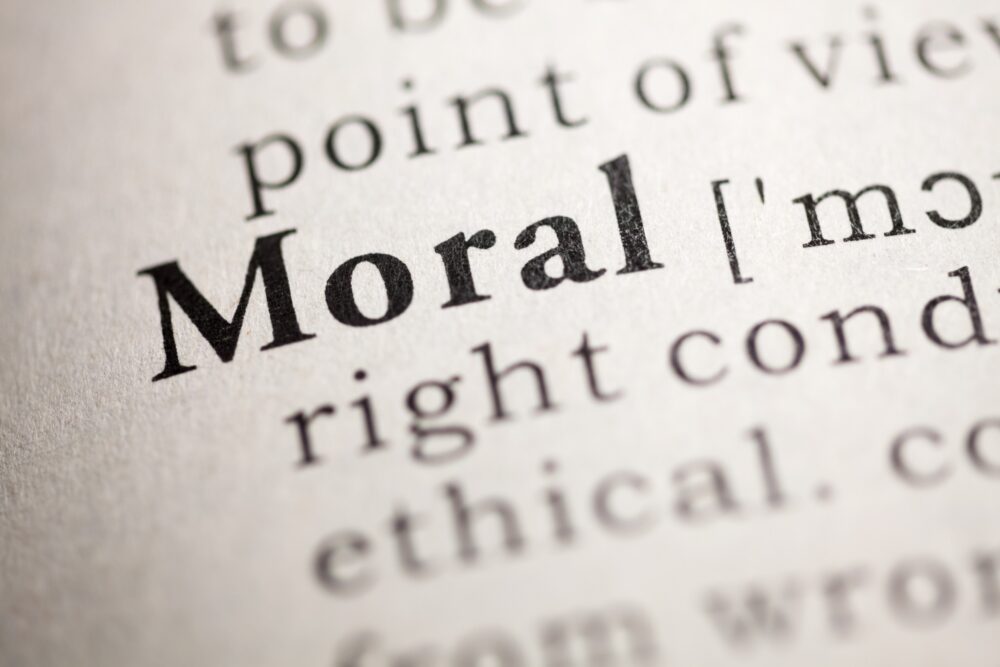Religion has been a cornerstone of human civilization for centuries. Faith-based values have shaped cultures and social norms, providing a moral compass for society. However, the modern world is increasingly becoming secularized.
Church attendance is declining and many people are embracing atheism. Observing these changes in society can evoke a sense of sadness for those who view religion as a vital source of community and identity. Here are 15 signs that religion is losing influence on society.
1. Lower Standards of Dress

It’s clear that religion is losing influence on society due to the way that most Americans dress. At many churches, the dress code has slipped from Sunday best to jeans and sweats. Outside of church, a lot of people are trading modest fashions for more revealing ones. Standards of dress on television shows have also declined, with many actors baring it all for ratings.
2. Impolite Language

Remember the swear jars we all had as kids? It used to be taboo to say cuss words. But now it seems like bad words are becoming a more accepted part of the English language. It’s not uncommon to hear swear words out in public and on social media. This worrying trend even seems to be catching on with younger generations.
3. Commercialization of Religious Holidays

Religious holidays are increasingly being celebrated in secular ways. Christmas is largely associated with gift-giving and Santa Claus. Easter has also become more commercialized due to the Easter Bunny, gift baskets, and egg hunts. This growing focus on materialism may dilute the spiritual significance of faith-based holidays. It also reflects a broader trend of religion losing influence on society.
4. Moral Decline

According to Gallup, a record 83% of Americans think that morals and values throughout the country are declining. Respondents believe that the way people are treating each other has gotten worse. They cited a lack of respect and consideration as major problems. Those surveyed also said that the decrease of religious faithfulness was a top moral issue in the United States.
5. Fewer Public Religious Displays

A survey by Pew Research found that Christians are less likely to support religious symbols being displayed on government property than in the past. This may indicate that public expressions of faith are becoming less common, especially in government buildings like schools.
For example, there have been frequent debates about the inclusion of the phrase “under God” in the pledge of allegiance that kids recite in school. Overall, Americans may be becoming more private about their beliefs, shifting away from public declarations of faith. This is yet another sign that religion is losing influence on society.
6. Negative Sentiment Toward Religion Online

If you’ve been on social media lately, you’ve probably seen some criticism of religious institutions. Many young adults are posting about their deconversions online and questioning the religious lessons they’ve been taught.
Influencers have even made popular songs about leaving the church. For example, online talk show host Rhett McLaughlin wrote a track called Believe Me about his deconversion experience. The growing negative sentiment toward religion online shows that faith is declining.
7. Decreasing Faith Among Young Adults

According to Pew Research, religion is losing influence on society all around the world. Globally, younger adults under 40 are less likely to be religious than older generations. In Canada, for example, only about half of younger adults are religiously affiliated, compared to 77% of older adults. A similar trend is occurring in many other countries such as the US, South Korea, Australia, and Japan.
8. Delaying Marriage

Americans are also delaying marriage at record rates. In 2021, 25% of 40-year-olds had never been married, a significant increase from 2010 data. Many religions support and encourage marriage. So the fact that this institution is on the decline shows that religion is losing influence on society.
9. Lower Church Attendance

According to NPR, church absenteeism has been on the rise for a decade. Ten years ago, only 21% of Americans said they never attended church services, compared to 29% in 2023. Church attendance levels also haven’t rebounded to pre-pandemic levels yet. In 2019, 19% of people attended church once a week, which dropped to 16% post-pandemic.
10. Switching Religions

Americans also seem to be less loyal to their current religion than in the past. According to NPR, many people are switching faiths. About 25% of survey respondents said that they previously followed a different religious tradition than they do now. NPR also reports that many are choosing to leave religion altogether. This uptick in both conversions and deconversions may show that religion is losing importance.
11. Lack of Religious Education

According to Pew Research, the courts have consistently ruled to forbid religious indoctrination in public schools. This means that schools need to be careful about the framing of religious education to avoid showing any bias toward a certain faith. As a result, traditional religious studies may be replaced with general ethics and philosophy courses. This lack of religious education might be contributing to the general decline in faith.
12. Focus on Science and Technology

Science and technology are increasingly shaping our worldviews. In this modern day and age, some people are relying on scientific principles to explain the world and provide meaning instead of religion. For example, growing numbers of Americans believe in evolution over creationism.
As technology advances further, religion may continue to decline. According to the BBC, people who highly value science and technology generally display less religiosity overall.
13. Bullying Over Religious Beliefs in Schools
Another sad sign religion is losing influence on society is hostility targeted at kids for their beliefs. According to US News & World Report, there has been an increase in reports of bullying against Christian children in school. This harassment may make religious students feel unwelcome at school. Additionally, they might feel compelled to hide their beliefs and avoid outward displays of faith, such as wearing religious jewelry.
14. Loss of Hope

Religion can be an important source of hope, meaning, and social connection for adherents. As faith has waned, it seems like pessimism has increased. According to Newsweek, 42% of respondents said they felt more pessimistic about the future of the United States than in 2019.
This loss of optimism is complex and multifactorial, but the waning popularity of religion may be a factor. The decline of religious belief among Americans could be contributing to the overall feelings of purposelessness and pessimism that seem to be permeating society.
15. Increasing Cohabitation Rates

Many religions discourage cohabitation before marriage. But adult couples under the age of 35 are frequently deciding to move in together before walking down the aisle. This departure from traditional religious values shows that religion is losing influence on younger adults. Many Gen Zers and Millennials aren’t allowing religious beliefs to dictate their life choices. Some are even choosing to forgo faith altogether.
Moving Toward a Diverse, Inclusive Society

The diminishing influence of religion on society is evident through various signs that highlight a shift towards secularization and changing social values. This trend may bring a sense of loss for those who cherish the moral guidance and community that religion provides.
However, this shift also reflects an evolving landscape where diverse belief systems can coexist and new ethical frameworks can emerge. As technology continues to advance, it’s important to maintain a balance between tradition and progress. Doing so will enable us to collectively navigate the complexities of modern life and foster a more inclusive society.
Read More
12 Rules From The Bible Changed By Modern Society
10 Things You Should Never Do at a Wedding
Read the full article here















